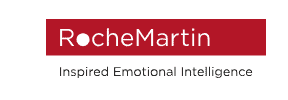Best Leadership Assessment Tools For 2024
Are you facing challenges in leadership development? You’re not alone. Every leader seeks to improve, but pinpointing strengths and areas for growth can feel like navigating a maze in the dark without the right tools. Enter the realm of leadership assessment tools, your beacon of light providing clarity and direction. I’ve used various tools throughout my career, and they all have their strengths. So what are the best leadership assessment tools?
In the fast-evolving workplace of 2024, these tools are more than just evaluations; they’re critical for anyone serious about personal and professional growth. But with so many options, how do you choose the right one?
This guide cuts through the noise to bring you the top leadership assessment tools of 2024. Each tool has been handpicked for its ability to offer deep insight into your leadership style, strengths, and areas that need a boost. Whether you want to enhance your communication, strategic thinking, or team-building skills, the right tool can set you on a path of transformative growth. Let’s dive in and discover how these tools can illuminate your leadership journey, providing the insights you need to excel.
Understanding Leadership Assessment Tools
Leadership assessment tools are designed to provide a combination of clarity and insight into your leadership capabilities, identifying areas of strength and those requiring development. These tools range from personality assessments to 360-degree feedback tools, each offering a unique lens through which to view your leadership skills. By leveraging these assessments, leaders can receive feedback and understand their leadership style, behavioral patterns, and how these elements impact their effectiveness within an organization.

What Does the Leadership Assessment Tool Do?
A leadership assessment tool serves multiple purposes. It can be administered on your own or by a coach. I prefer to work with a coach to complete the assessments, as getting a third-party perspective is good. However, if you can’t obtain a coach right now, still move forward with an assessment as it helps identify key leadership competencies, assesses an individual’s ability to lead effectively, and provides actionable feedback for personal development.
Through various methodologies, including DISC assessments and Myers-Briggs Type Indicator (MBTI), these tools evaluate aspects such as decision-making, communication, and how a leader motivates and manages their team. The ultimate goal is to unlock creative leadership potential and guide leaders on their journey to becoming more effective and impactful.
9 Best Leadership Assessment Tools For Insight in 2024
As we move into 2024, the landscape of leadership assessment tools continues to evolve, and it’s tough to choose. Here are the top 9 tools to watch:
- 360 Degree Feedback: Offers comprehensive feedback from peers, subordinates, and supervisors.
- DISC Assessment: Analyzes behavioral styles and how they influence leadership.
- Myers-Briggs Type Indicator (MBTI): Provides insight into personality preferences and how they affect leadership style.
- StrengthsFinder: Focuses on identifying and leveraging individual strengths.
- Saville Assessment: Evaluates leadership competencies and potential.
- Leadership Practices Inventory: Measures leadership behaviors and actions.
- Emotional Intelligence (EQ) Assessments: Assesses emotional intelligence skills crucial for effective leadership.
- Hogan Assessments: Predicts leadership success through personality evaluation.
- Leadership Skills Assessment: Identifies specific skills and areas for development.

360-Degree Feedback
Pros:
- Comprehensive Insight: Offers a well-rounded view of leadership abilities by collecting feedback from various sources, including peers, subordinates, and supervisors.
- Enhanced Self-Awareness: Helps leaders understand how their actions and leadership style are perceived by others, fostering greater self-awareness.
- Personalized Development: Feedback is specific to the individual, allowing for targeted personal development plans.
Cons:
- Potential Bias: Personal relationships can influence feedback, leading to biased responses.
- Overwhelming Information: The volume of feedback received can be overwhelming and may require a professional consultant to help interpret it effectively.
- Emotional Impact: Negative feedback can be demotivating if not delivered and managed correctly.
Consumer Feedback:
Users appreciate the 360-degree feedback for its holistic approach to assessing leadership skills. Many note significant improvements in their leadership style and team dynamics after implementing changes based on the feedback. However, some express concerns over the emotional toll of negative feedback and the challenge of actioning a large volume of comments. If you are a person who struggles with feedback, feel free to review my take on feedback.

DISC Assessment
Pros:
- Behavioral Insight: Provides insight into behavioral styles and how they affect team interaction and leadership effectiveness.
- Easy to Understand: The DISC model is straightforward, making it accessible for individuals at all levels.
- Actionable Strategies: Offers practical advice on how to adapt communication and leadership approaches based on DISC profiles.
Cons:
- Limited Scope: Focuses primarily on behavior, potentially overlooking other critical aspects of leadership, such as emotional intelligence.
- Over-Simplification: Some critics argue that DISC can oversimplify complex human behaviors into broad categories.
Consumer Feedback:
Participants value the DISC assessment’s simplicity and actionable insights, particularly in improving team communication and conflict resolution. However, some wish for a deeper exploration of leadership competencies beyond behavioral tendencies. I’ve gone through this assessment and found some great takeaways I could implement immediately.

Myers-Briggs Type Indicator (MBTI)
Pros:
- Personality Depth: Delves into personality preferences, offering a deep understanding of one’s leadership style and how it influences team dynamics.
- Personal Growth: Encourages self-reflection and personal growth that will help you identify your strengths and potential areas for development.
- Team Building: Facilitates better team understanding and cohesion by highlighting diverse personality types.
Cons:
- Fixed Categories: The binary nature of its categories (e.g., introversion vs. extroversion) may not capture the full spectrum of human personality.
- Application to Leadership: While insightful for personal development, its direct application to leadership effectiveness can be less precise.
Consumer Feedback:
Users often report increased self-awareness and improved interpersonal relationships from MBTI insights. However, some express skepticism about its applicability in practical leadership scenarios and the risk of pigeonholing personalities. At one point, this assessment seemed to get brought up in every organization. Now I hear about it less, in favor of other assessment programs.

StrengthsFinder
Pros:
- Focus on Strengths: Empowers leaders by identifying and leveraging their innate strengths, leading to more effective leadership.
- Customized Strategies: Provides personalized development and team management strategies based on individual strengths profiles.
- Positive Approach: Encourages a positive focus on what leaders do best, enhancing motivation and engagement.
Cons:
- Neglect of Weaknesses: By focusing primarily on strengths, essential areas for improvement may be overlooked.
- Cost: Access to complete reports and resources can be expensive, limiting accessibility for some individuals or organizations.
Consumer Feedback:
Most find StrengthsFinder uplifting and empowering, appreciating the focus on positive aspects of their leadership. Critiques often revolve around the desire for more balanced feedback that addresses weaknesses.

Saville Assessment
Pros:
- Comprehensive Evaluation: Assesses a wide range of competencies, providing a detailed overview of leadership potential and areas for development.
- Scientifically Validated: Backed by robust research, ensuring the reliability of its assessments.
- Customizable: Can be tailored to specific organizational roles and competencies, making it highly relevant.
Cons:
- Complexity: The depth and breadth of the assessment can be daunting for some, requiring expert interpretation.
- Time-Consuming: The comprehensive nature of the assessment means it can be time-consuming to complete.
Consumer Feedback:
The Saville Assessment is praised for its thoroughness and accuracy in identifying leadership qualities and potential. However, some users find the process time-intensive and the results complex to unpack without professional guidance. I’ve found that you have to lean into what resonates with you. If you don’t have the time to go through the program, another one may benefit you more.

Leadership Practices Inventory
Pros:
- Action-Oriented: Focuses on observable leadership behaviors, providing clear pathways for action and improvement.
- Evidence-Based: Grounded in extensive research linking practices to effective leadership.
- Feedback for Growth: Encourages continuous learning and development through regular feedback cycles.
Cons:
- Requires Commitment: Maximizing its benefits requires a commitment to ongoing practice and feedback.
- Scope Limitation: Primarily measures leadership behaviors, potentially missing other critical elements of leadership effectiveness.
Consumer Feedback:
Leaders and HR professionals commend the Leadership Practices Inventory for its practical approach to development. Some, however, wish for broader assessments that include personality and emotional intelligence factors.

Emotional Intelligence (EQ) Assessments
Pros:
- Critical Skill Assessment: Targets emotional intelligence, a key predictor of leadership success.
- Improves Relationships: Helps leaders enhance their interpersonal skills, leading to better team dynamics.
- Self-Improvement: Offers insights into personal emotional strengths and weaknesses, guiding personal development.
Cons:
- Subjectivity: Assessing emotional intelligence can be subjective, with results varying based on self-perception and honesty.
- Implementation Challenge: Translating EQ insights into actionable leadership improvements can be challenging without guidance.
Consumer Feedback:
Users highly value the focus on emotional intelligence, noting improvements in communication and empathy. The main challenge reported is applying these insights effectively in the workplace. I have an article dedicated to this, and if you can grasp it, I believe it levels up your leadership ability.

Hogan Assessments
Pros:
- Personality Depth: A deep dive into personality traits that predict leadership success.
- Dark Side Identification: Unique in identifying potential derailers under stress.
- Strategic Development: Offers strategic insights for leadership development and team composition.
Cons:
- Complex Interpretation: Results can be complex and require professional interpretation to understand fully.
- Focus on Negative Traits: While identifying derailers is valuable, it can also be confronting for some individuals.
Consumer Feedback:
The Hogan Assessments are lauded for their comprehensive analysis and ability to predict leadership potential. Some users, however, find the focus on negative traits challenging to process and apply. As you can see, the balance of feedback can be subjective and dependent on how you like to receive feedback. My challenge for everyone is to look at both sides of feedback (positive or negative) and create action plans. For instance, if you are receiving positive feedback, what will you do to keep doing it or do it better? If you need help with something, what actions will you take to improve?

Leadership Skills Assessment
Pros:
- Skill-Specific Feedback: Targets specific leadership skills, providing clear areas for improvement.
- Benchmarking: Leaders can benchmark their skills against industry standards or organizational expectations.
- Developmental Focus: Designed to identify gaps and create targeted development plans.
Cons:
- May Miss Broader Qualities: While focusing on skills is beneficial, it may not capture the whole essence of leadership, such as personality or emotional intelligence.
- Varied Quality: The effectiveness can vary depending on the provider and how well the assessment is aligned with organizational needs.
Consumer Feedback:
Participants appreciate the specificity and actionable nature of the Leadership Skills Assessment, especially for targeted skill development. Some note the importance of complementing it with broader assessments for a complete leadership profile.

What Are the Most Effective Leadership Self-Assessment Tools?
The most effective leadership assessment tools provide clear, actionable insights into your leadership style, strengths, and areas for improvement. Tools like the 360 degree feedback and DISC assessment are highly valued for their comprehensive approach and ability to offer a well-rounded view of leadership abilities. Similarly, the Myers-Briggs Type Indicator and StrengthsFinder are praised for their focus on personal traits and strengths, helping leaders harness their unique capabilities. The effectiveness of each can be highly influenced based on the metrics that you or your company value the most.

Key Considerations When Choosing Leadership Assessment Tools
Selecting the right leadership assessment tool requires careful consideration of several factors:
- Relevance: Ensure the tool aligns with your specific leadership development goals.
- Validity: Look for tools with a proven track record of accuracy and reliability.
- Feedback: Choose assessments that provide detailed, constructive feedback to guide your development.
- Usability: Consider the ease of administration and interpretation of results.
- Support: Assess the level of support and resources available for understanding and applying the insights gained.
By focusing on these critical areas, leaders can select the assessment tools best suited to their individual needs and organizational context, paving the way for meaningful leadership development and enhanced effectiveness.
Conclusion: Mastering the Art of Leadership with the Right Assessment Tools
Selecting the optimal leadership assessment tool is a critical decision that can significantly influence your journey toward effective leadership. The landscape of leadership development tools in 2024 is rich and varied, offering many options to identify, assess, and enhance your leadership skills. From the comprehensive feedback provided by 360-degree assessments to the deep behavioral insights of DISC and the personality depth explored by MBTI, each tool has its unique strengths and potential drawbacks. Developing emotional intelligence is one of my top 5 go-to’s, but it may not be the most important for your current organizational needs.
The key to navigating this landscape is understanding the capabilities of each assessment tool and how they align with your personal and organizational goals. Whether you’re seeking to refine your leadership style, enhance your team’s cohesion, or identify areas for personal growth, the best leadership assessment tools of 2024 offer a pathway to achieving these objectives. They serve as a mirror, reflecting your current competencies and areas for development while also acting as a compass, guiding your leadership journey towards greater effectiveness and impact.
Incorporating feedback tools, developmental assessments, and performance assessments into your leadership development program can provide a multifaceted view of your leadership potential. When used effectively, these tools can transform abstract concepts like leadership potential and organizational culture into tangible, actionable insights. They allow you to differentiate your strengths from areas needing improvement, offering a clear direction for future training and development.
As we look towards the future of leadership, choosing the proper assessment tools cannot be overstated. These tools help identify your strengths and weaknesses and provide a framework for continuous improvement in key areas. By embracing these assessments, you commit to self-discovery and leadership excellence, armed with the insights needed to lead with confidence and creativity.
Remember, the journey to becoming a great leader is ongoing, and the proper assessment tools are your allies in this quest. They offer a confidential, proficient, and efficient way to gauge your leadership abilities, providing feedback from multiple perspectives to ensure a well-rounded development plan. As you navigate the available online options, consider how each tool aligns with your leadership aspirations and organizational needs. With the right tools, you’re well on your way to unlocking your full leadership potential, ready to face the challenges of 2023 and beyond with resilience and adaptability.
FAQ
What is the most widely used assessment tool for all leadership levels?
The 360-degree feedback tool is the most widely used leadership assessment across all levels of management. Its popularity stems from its comprehensive approach, gathering feedback from a leader’s supervisors, peers, and subordinates, which provides a well-rounded view of leadership skills and effectiveness. This tool has been a staple in leadership development programs for over 50 years, valued for its ability to identify areas of strength and opportunities for growth in a leader’s behavior and style.
What is the best 360 leadership assessment?
The best 360 leadership assessment is often considered the Leadership Practices Inventory (LPI). The LPI measures behaviors associated with effective leadership and is renowned for its evidence-based approach and actionable insights. It provides leaders with a clear understanding of their leadership strengths and areas for improvement based on feedback from multiple perspectives. This tool is highly regarded for its proficiency in fostering self-awareness and promoting leadership development.
What is the most effective tool of leadership?
The most effective tool of leadership is arguably emotional intelligence (EQ) assessment. These tools assess a leader’s ability to understand and manage their own emotions, as well as recognize and influence the feelings of others. High EQ is closely linked to effective leadership, enhancing communication, conflict resolution, and team building. EQ assessments provide valuable insights into a leader’s emotional strengths and weaknesses, offering a pathway to develop the soft skills crucial for leadership success.
What is a leadership assessment tool?
A leadership assessment tool is a questionnaire or series of tests designed to evaluate various leadership ability and potential aspects. These tools assess various competencies, including decision-making, strategic thinking, emotional intelligence, and interpersonal skills. Leadership assessment tools identify a leader’s strengths and areas for development, guiding personalized development plans and enhancing overall leadership effectiveness.
What to expect in a leadership assessment test?
In a leadership assessment test, you can expect to complete a series of questions or tasks to evaluate your leadership competencies, personality traits, cognitive abilities, and behavioral styles. These assessments may include situational judgment tests, personality questionnaires, and cognitive ability tests. The goal is to gain insights into your leadership style, strengths, and areas needing improvement. Feedback from these assessments is used to create a development plan tailored to your needs, helping you to enhance your leadership skills quickly and efficiently.